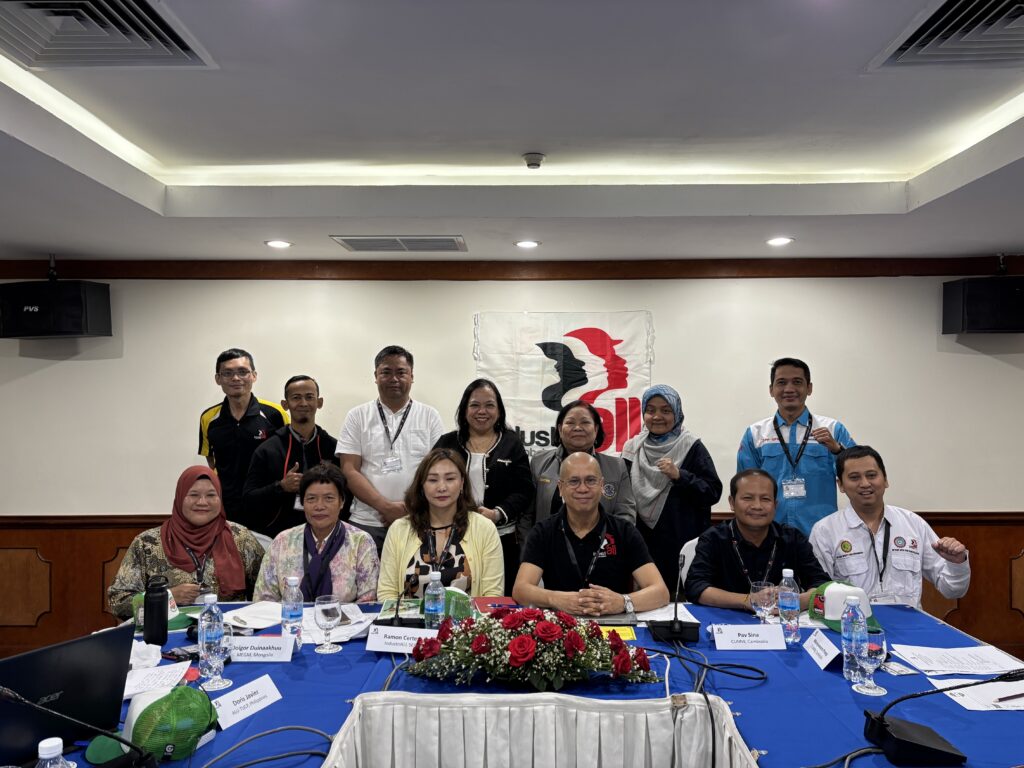Read this article in:
English
17 September, 2025On 11 September 2025, eleven members of the occupational health and safety (OHS) ad hoc committee from Cambodia, Indonesia, Malaysia and the Philippines convened in Phnom Penh to develop a roadmap for a comprehensive safety and health campaign for 2025–2026.
The committee members identified heat stress as one of the most important health and safety issues in garment, textile, electronics and other manufacturing sectors. Some electronics factories have increased the temperature of air-conditioning systems as a measure to cut costs, many workers are feeling hot because they are required to wear thick apparel to operate machines in clean rooms.
Garment workers in Cambodia are suffering from heat stress. The increase of temperature in garment factories will affect workers' health, a good ventilation system and prevention of fire and explosion measures are required. The Cambodian government has issued a directive to ensure that the work environment temperature must be lower than 32 degree celsius or else labour inspectors will impose a penalty.
The president of Collective Union of Movement of Workers (CUMW) Pav Sina said:
“We have disseminated the information relating to heat stress, government directive and the necessity of a good ventilation system in garment factories. Heat stress will negatively impact productivity and working hours as workers are exposed to heat-related diseases and workplace hazards. Companies should consider scheduling shifts during cold hours and installing air-conditioning systems in factories.”
The regional occupational safety and health workshop outlined other action plans:
- Launching a campaign on ratification of ILO Convention 170 on Chemical substances
- mapping of OHS committees at the plant level producing a guidelines for OHS committees
- strengthening of the communication and exchange platform and inviting more OHS experts to join the group
- organizing quarterly zoom meetings to share affiliates' OHS initiatives.
The participants agreed that the inclusion of ILO Conventions 155 and 187 as fundamental conventions underlines the importance of safety and health at workplaces. Trade unions must play a vital role to implement policy strategies integrated in the conventions, educating unionists to focus on prevention and reporting of occupational diseases or accidents.
There is also a consensus that OHS committee members should mutually learn from each other, for example the implementation of ILO Convention 176 on Safety and Health in Mines in Mongolia and Philippines. Indonesia unionists are facing serious safety and health issues at nickel mines in Morowali, but the government refused to ratify Convention 176 on the ground that there are already sufficient laws and regulations.
IndustriALL South East Asia regional secretary, Ramon Certeza, said:
“Health and safety have become universal rights after the inclusion of two conventions as fundamental conventions and evolving United Nations' normative guidance for occupational health and safety. We as unions must continuously demand three fundamental workers' rights in health and saftey – right to know, right to refuse and right to participate in decision making.”
